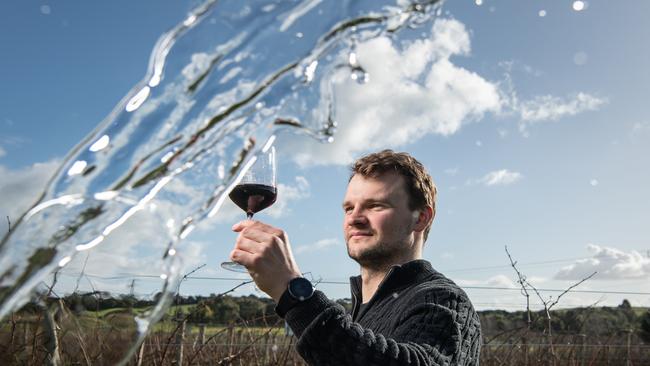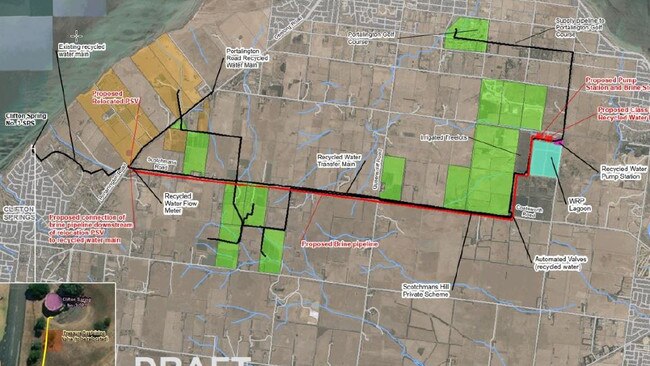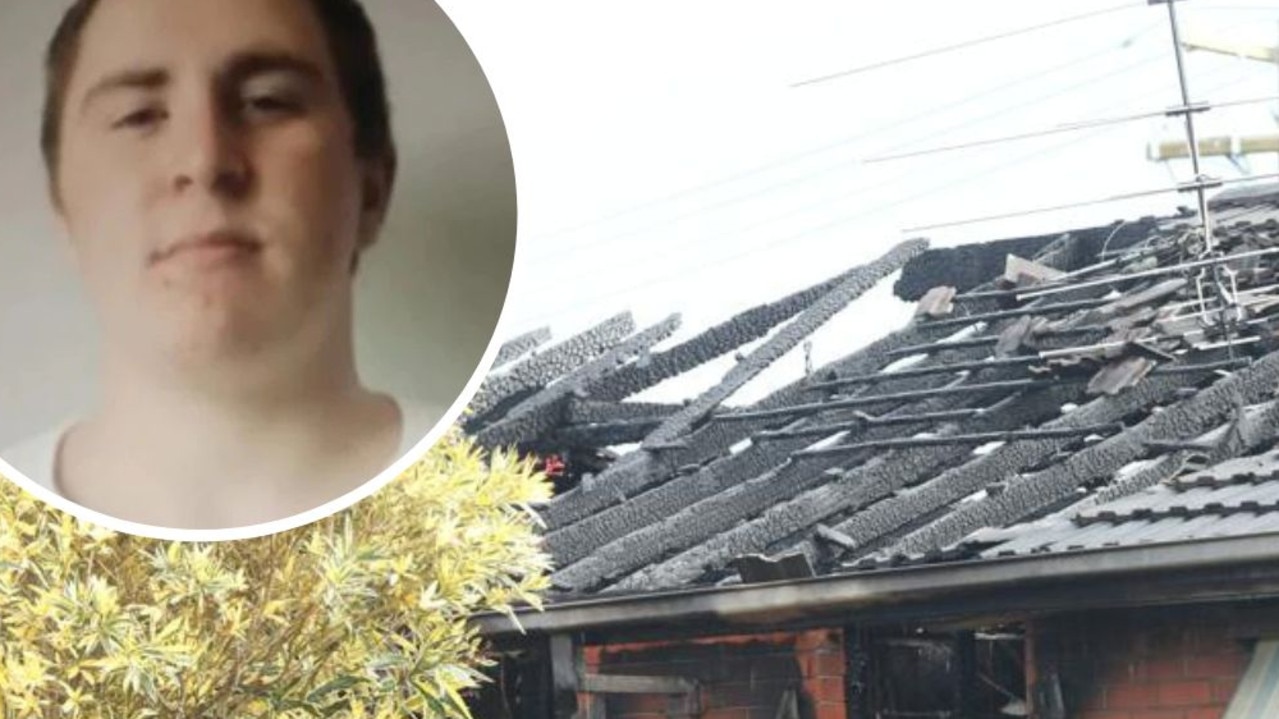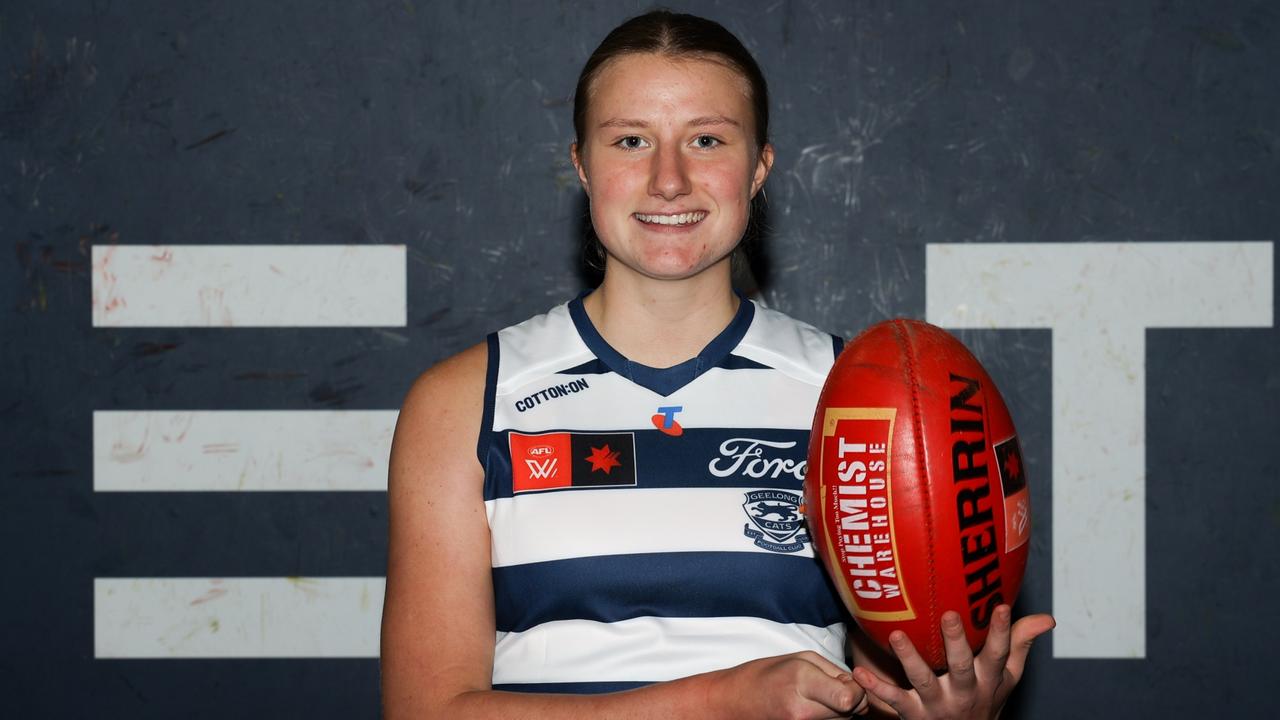$14m recycled water plant could see Bellarine winemakers double their crop
Household waste water treated at Portarlington will be used for wine production under a multi-million-dollar water infrastructure plan. See the details.

Geelong
Don't miss out on the headlines from Geelong. Followed categories will be added to My News.
Local winemakers – and drinkers – could be the big beneficiaries of a planned $13.9m recycled water plant at Portarlington, capable of filtering up to 450 million litres a year.
Barwon Water is running a tender process for the plant to be built on part of its 120ha site.
When the upgrade is complete more household wastewater will be transformed for agriculture and horticulture by reducing its salt content.
It is hoped the upgrade will lift the annual use of recycled water on the Bellarine Peninsula from 200 to 450 million litres.
Bellarine Estate winery wants to access the low-salinity recycled water when the upgrade of the plant is completed in 2025.
Bellarine Estate owner Peter Kenny said the recycled water would allow him to expand grape growing at his 9ha site, where about 50,000 litres of wine is produced a year.
“This will improve sustainability of winemaking in the region … and also gives us ability to plant more,” Mr Kenny said.

“We could easily double our planting in our vineyard, and I’m sure a lot of the other vineyards are thinking the same.”
Mr Kenny said he had to “shandy” about five million litres of high-salinity recycled water per year with a similar amount of drinking water so it could be used on the vineyard.
“The biggest issue with recycled water (we access) currently is that it has high-salinity. If you put it on the vines it is intolerable for the soil.”
Mr Kenny estimated vineyards on the Bellarine Peninsula would use about 150 million litres of recycled water per year when the Portarlington recycled water plant was complete.
The water would be distributed from the Barwon Water site at Portarlington to the Bellarine Peninsula via pipes stretching to Clifton Springs, Drysdale and the Portarlington Golf Course, according to tender documents.
After the upgrade, the Portarlington recycled water plant needs to be able to produce three million litres of low-salinity recycled water per day, tender documents state.
Victorian Farmers Federation branch secretary Fiona Conroy said most farmers weren’t using recycled water on the Bellarine Peninsula because it wasn’t cost effective and salinity levels were too high.
“Water is going to become an increasing issue because a lot of farmers on the Bellarine don’t have access to … town water.”
Pipes to pump the low-salinity recycled water across the Bellarine to about 12 customers have been built.
The Portarlington recycled water plant tender is due to close next month. Construction is scheduled to start in the final months of this year and be complete by 2025.
The $13.9m project is funded by $6.4m from Barwon Water, $5.53m from the federal government and $1.97m from the state government.
More Coverage
Originally published as $14m recycled water plant could see Bellarine winemakers double their crop




